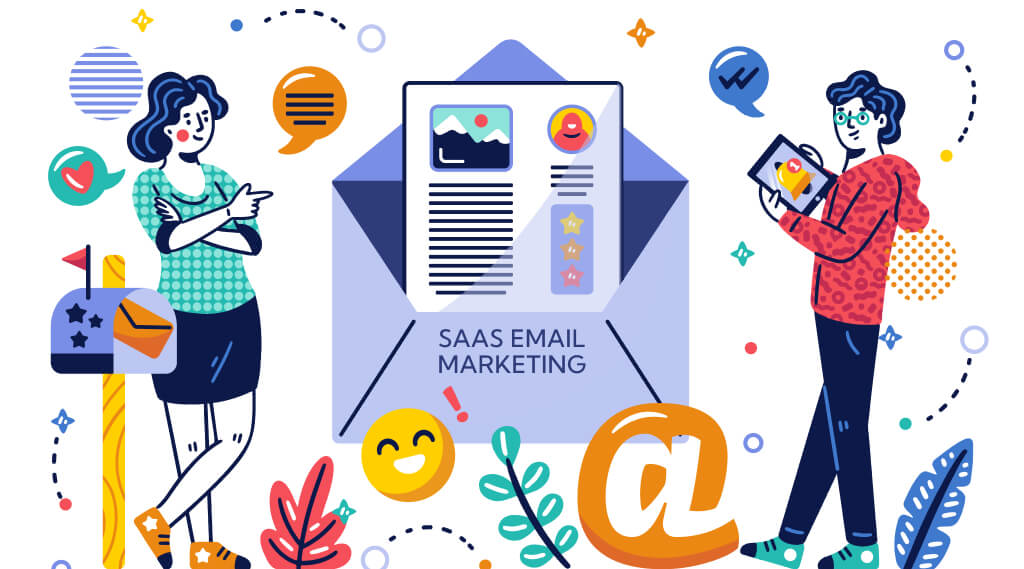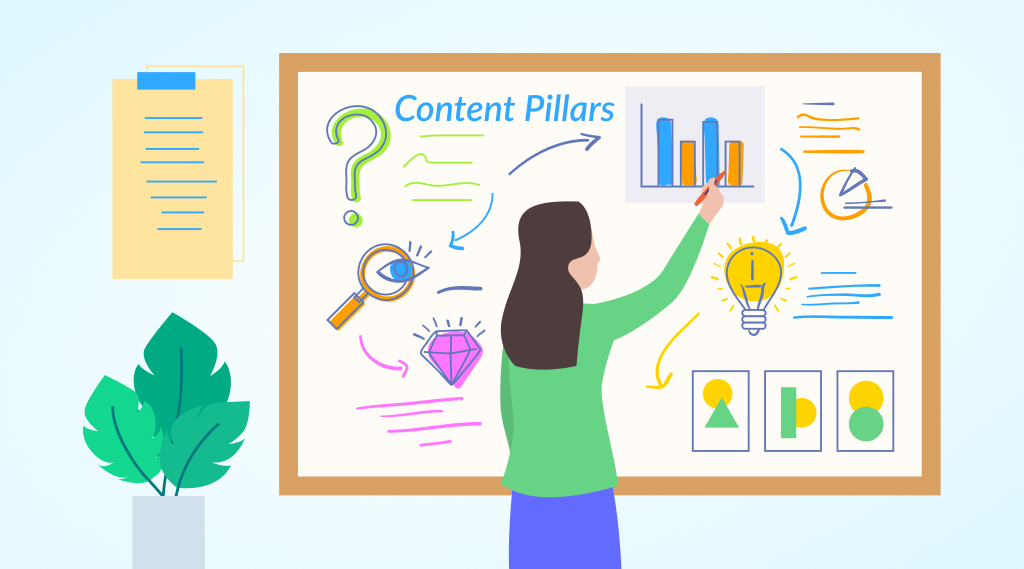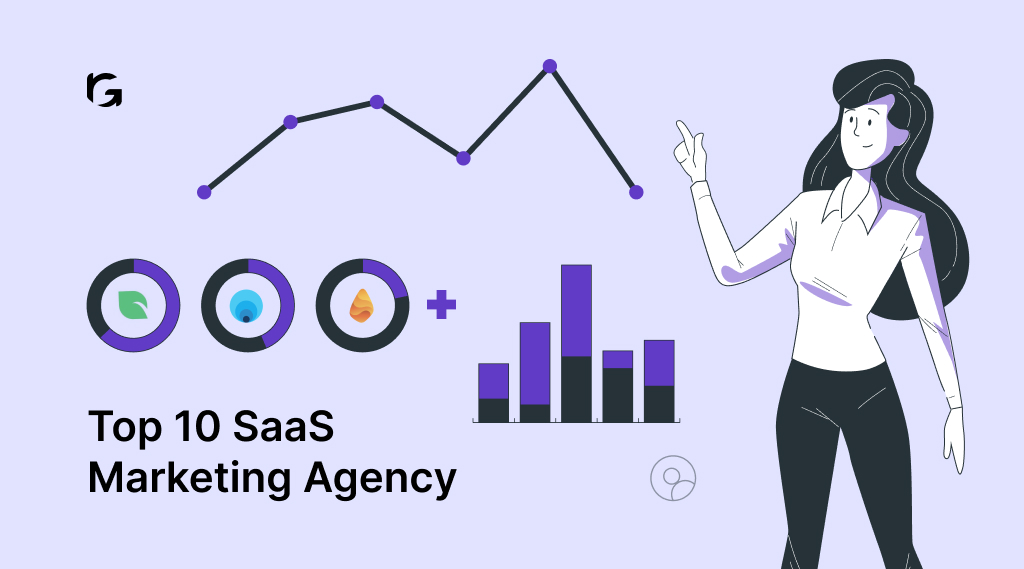Email marketing is a powerful tool for businesses to connect with their audience, drive sales, and build relationships.
With the rise of software-as-a-service (SaaS) solutions, email marketing will become more accessible and effective than ever before. Go through this post to learn everything about SaaS email marketing to increase conversions and grow your business.
What is SaaS email marketing?
SaaS email marketing refers to the use of cloud-based software to manage and execute email marketing campaigns.
Unlike traditional email marketing software that requires installation and maintenance, SaaS platforms are hosted online and accessible through web browsers. These platforms provide a range of features, including email template creation, list management, automation, analytics, and more, making it easier for businesses to execute targeted and personalized email campaigns.
Why is SaaS email marketing so important?
SaaS email marketing holds immense importance for businesses due to several key factors. Some of the key factors are discussed in detail below:
- Accessibility
- Cost-effectiveness
- Scalability
- Advanced features
- Integration capabilities
1. Accessibility: SaaS email marketing platforms are accessible from any device with an internet connection. This accessibility allows businesses to manage their email marketing campaigns from anywhere, whether in the office, at home, or while traveling. Businesses can stay connected with their audience and respond promptly to any campaign needs or opportunities, which is a major factor contributing to success.
2. Cost-effectiveness: SaaS solutions typically operate on a subscription-based model, where businesses pay a recurring fee for access to the software. This subscription model eliminates the need for upfront investment in software licenses and hardware infrastructure, making email marketing more affordable for businesses of all sizes.
The best part about SaaS platforms is that they often offer tiered pricing plans, allowing businesses to choose a plan that aligns with their budget and scale their investment as their email marketing needs evolve.
3. Scalability: SaaS email marketing platforms offer scalable solutions that can grow alongside businesses.
As businesses expand their audience or increase their marketing efforts, they can easily scale their email marketing efforts by upgrading their subscription plan or adding additional features or users as needed. This scalability ensures that businesses can effectively manage their email marketing campaigns, regardless of their size or growth stage.
4. Advanced features: SaaS email marketing platforms come equipped with advanced features that empower businesses to execute more sophisticated and targeted campaigns.
The features may include automation tools for scheduling and sending emails, segmentation capabilities for targeting specific audience segments, personalization options for tailoring content to individual recipients, and analytics tools for tracking campaign performance and optimizing strategies.
5. Integration capabilities: SaaS email marketing platforms often integrate seamlessly with other marketing tools and platforms, such as customer relationship management (CRM) systems, e-commerce platforms, and social media networks.
The integration capability of SaaS email marketing platforms allows businesses to streamline their marketing efforts by centralizing data and workflows across multiple platforms. For example, businesses can sync customer data between their email marketing platform and CRM system to create more targeted and personalized campaigns.
5 Top proven strategies for SaaS email marketing
Effective SaaS email marketing depends on employing strategic approaches. The key strategies for SaaS email marketing in 2024 are:
1. Build a quality email list
Building a quality email list involves attracting subscribers who are genuinely interested in your business and what you have to offer. It’s essential to focus on attracting subscribers who have opted in to receive communications from your business voluntarily.
Offering incentives such as discounts, exclusive content, or free resources can encourage visitors to subscribe to your email list. By building a quality email list, you ensure that your email campaigns reach engaged recipients who are more likely to open, read, and act on your emails.
2. Segment your audience
Audience segmentation involves dividing your email list into smaller, more targeted groups based on specific criteria such as demographics, interests, purchase history, or behavior.
Segmenting your audience facilitates sending more personalized and relevant content to each group, increasing engagement and conversions.
For example, you can create segments based on geographic location and send localized promotions, or you can create segments based on past purchase history and send targeted product recommendations.
3. Personalize your emails
Personalization is the process of customizing your email content to make it more relevant and engaging for individual recipients. This can include using merge tags to include subscribers’ names in your emails, tailoring your content to their interests or preferences, or referencing past interactions with your brand.
Personalized emails are more likely to resonate with recipients and drive engagement and conversions. By leveraging personalization in your email campaigns, you can create a more intimate and meaningful connection with your audience, leading to improved campaign performance and customer loyalty.
4. Create compelling content
Compelling content is essential for capturing the attention of your email subscribers and encouraging them to take action. Whether it’s informative posts, product updates, special offers, or exclusive promotions, your content should provide value to your subscribers and be aligned with their interests and needs.
Focus on creating content that is engaging, relevant, and actionable. Use clear and concise language, compelling visuals, and a strong call to action to encourage recipients to engage with your emails and take the desired action.
Delivering valuable content to your subscribers will help build trust, credibility, and loyalty with your audience, driving long-term success for your email marketing campaigns.
5. Optimize for mobile devices
With the increasing use of mobile devices for email consumption, it’s essential to ensure that your emails are optimized for mobile viewing.
Optimizing email for mobile devices involves using responsive design techniques to ensure that your emails look great and function properly on smartphones and tablets. Make sure that your emails are easy to read, navigate, and interact with on mobile devices by using mobile-friendly layouts, fonts, and buttons.
6. Test and iterate
Testing and iteration are crucial for optimizing the performance of your email campaigns over time. Continuously test different elements of your email campaigns, such as subject lines, send times, calls to action, and content, to identify what resonates best with your audience.
Use A/B testing to compare different versions of your emails and measure the impact of changes on key metrics such as open rates, click-through rates, and conversions. Testing and iteration allow you to stay agile and responsive to changes in your audience’s preferences and behavior, ensuring that your email marketing efforts remain relevant and impactful.
5 Examples of successful SaaS email marketing campaigns
Have a look at five examples of successful SaaS email marketing campaigns that effectively engage users and drive conversions.
1. Grammarly:
Grammarly effectively uses email marketing to engage users and drive conversions. Usually, every email by Grammarly is highly personalized, providing users with recommendations and tips tailored to their writing habits and preferences.
By offering exclusive offers and highlighting the benefits of upgrading to premium subscriptions, Grammarly encourages users to take action and upgrade their accounts. Additionally, Grammarly’s emails are well-designed and easy to read, ensuring that they capture the attention of recipients and drive them towards conversion.
2. Canva:
Canva employs email marketing to keep users engaged and encourage them to create more designs using the platform. Emails from Canva feature design inspiration, tutorials, and user-generated content, showcasing the versatility and creative possibilities of the Canva platform.
Canva enhances the user experience by offering valuable resources and content, motivating them to stay engaged with the platform for their design requirements. Furthermore, Canva’s visually captivating emails grab recipients’ attention, solidifying the brand’s reputation as a premier graphic design platform.
3. HubSpot:
HubSpot leverages email marketing to educate users about marketing best practices, promote their software features, and nurture leads through the sales funnel. The main highlights of Hubspot emails are valuable insights, actionable tips, and resources to help users succeed in their marketing efforts.
HubSpot establishes credibility and trust with its audience by presenting itself as a reliable source of information and expertise. This approach promotes engagement and loyalty among users. Moreover, HubSpot’s emails are precisely targeted and personalized, resonating with recipients and guiding them towards conversion.
4. Spotify:
Spotify uses email marketing to deliver personalized recommendations and curated content to users based on their listening history and preferences. Their emails feature curated playlists, artist recommendations, and concert alerts tailored to each user’s musical tastes and preferences.
Spotify enriches the user experience by providing relevant and captivating content, motivating users to stay loyal to the platform for their music streaming desires. Furthermore, Spotify’s personalized emails deepen the bond between the brand and its users, boosting engagement and retention.
5. Dropbox:
Dropbox employs email marketing to drive user engagement and promote new features and updates. The specialty of Dropbox emails is that they have clear and concise messaging, compelling visuals, and calls to action that encourage users to take specific actions, such as upgrading their storage plan or inviting friends to join Dropbox.
By highlighting the benefits of using Dropbox and providing users with actionable steps to take, Dropbox effectively drives conversions and encourages users to further engage with the platform. Also, Dropbox’s emails are well-designed and visually appealing, ensuring that they capture the attention of recipients and drive them towards conversion.
Wrapping up
SaaS email marketing offers businesses a powerful and cost-effective way to connect with their audience, drive engagement, and increase conversions. By leveraging the accessibility, scalability, and advanced features of SaaS platforms, businesses can execute more targeted and personalized email campaigns that resonate with their audience and drive results.
By following the strategies outlined in this guide and drawing inspiration from successful examples, businesses can unlock the full potential of SaaS email marketing to achieve their marketing goals in 2024 and beyond.



